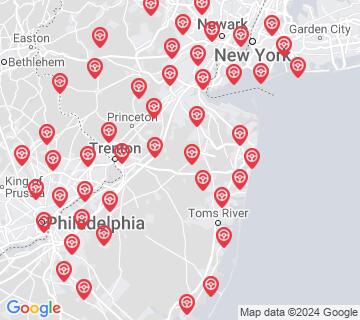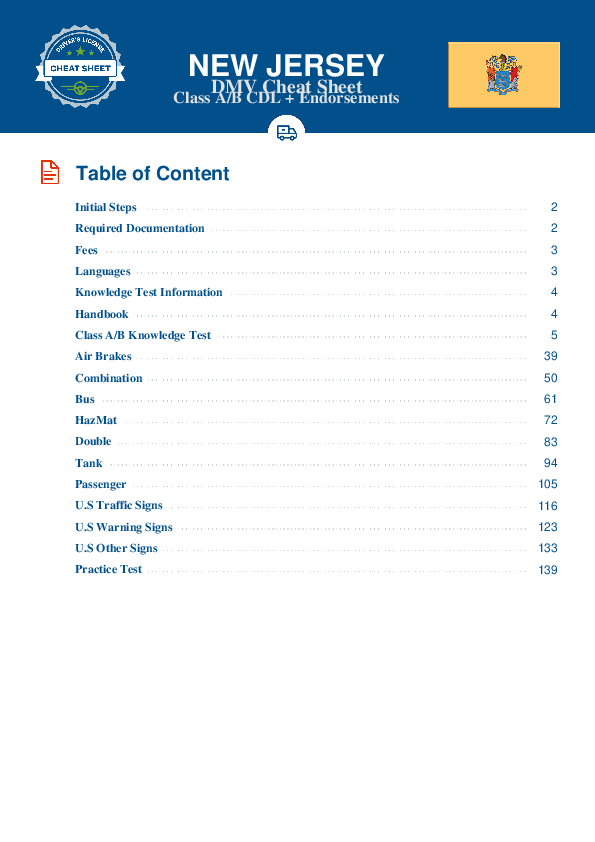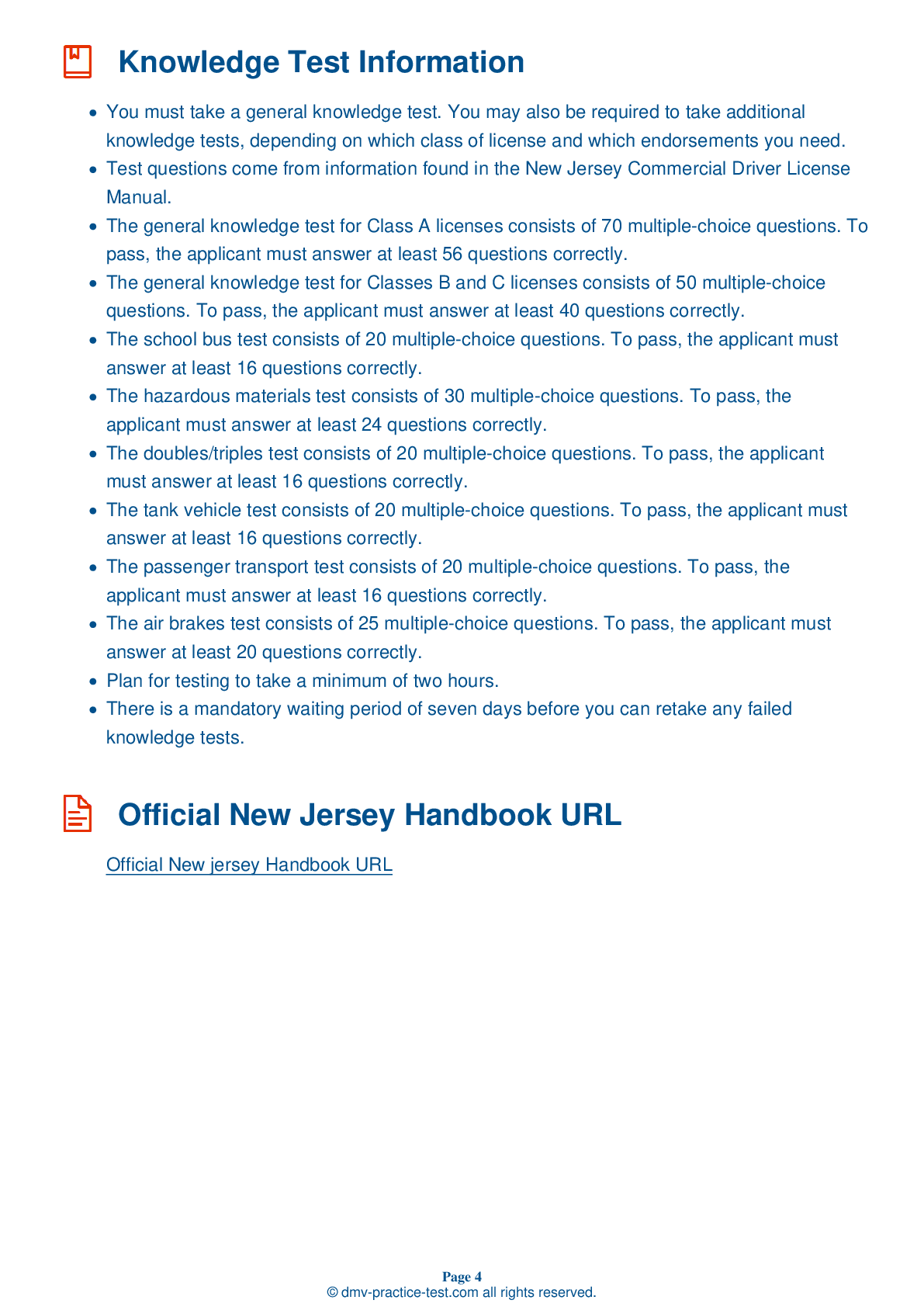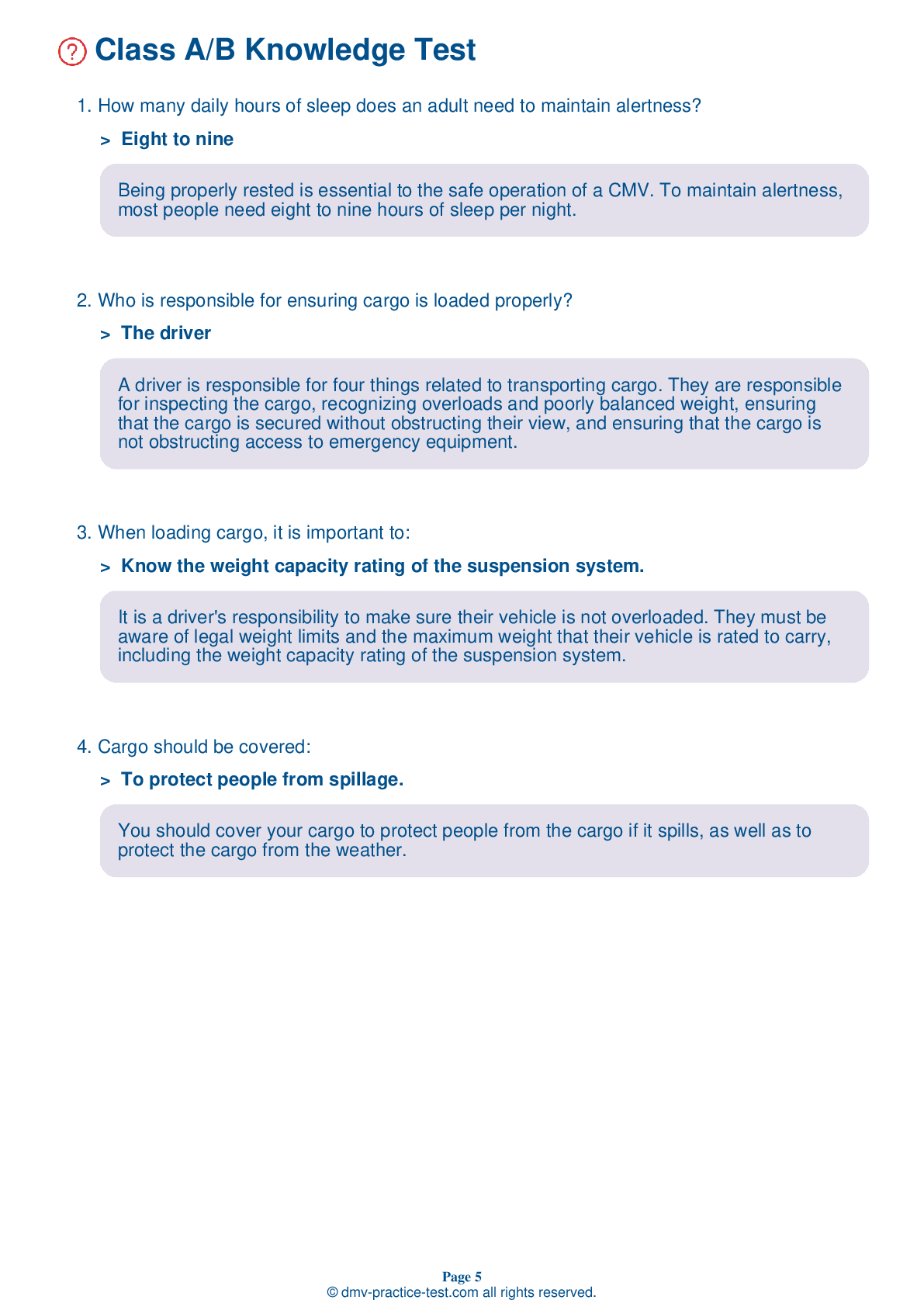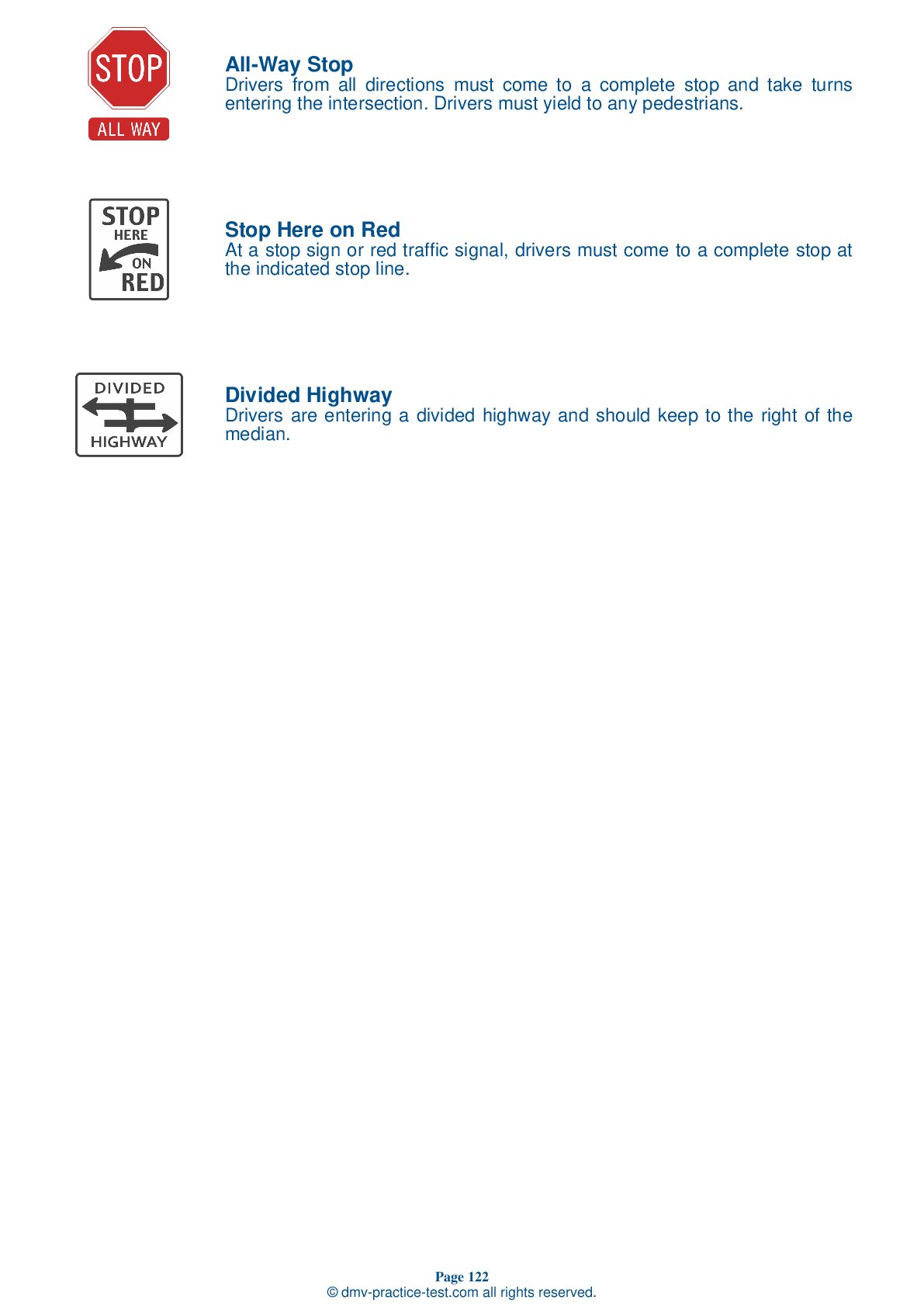Double #1
Double Triple Test | New Jersey 2026 #1 Page 2 of 3
Train for FREE with our New Jersey CDL double triple practice test online. The official exam test consists of several obligatory parts, with all of them checking your knowledge of different blocks of road rules. If you need to obtain a NJ CDL double triple license in 2026, practice as much as possible. Free sample tests published on our website will help you check and improve your knowledge and boost your grades. Please bear in mind that DMV requirements may vary from state to state.
20
16
20
8 . If you are being tailgated, you should:
Allow the vehicle to pass.
If someone is tailgating you, it is a good idea to open up the space ahead of your vehicle to make it easier for the driver to pass you. Increasing your speed is not a good idea because the driver may continue to tailgate you at the higher speed, only increasing the danger.
9 . A low air pressure warning signal should activate:
When tank pressure falls below 5 psi.
In an air brake system, a low air pressure warning signal must come on if air pressure in the tanks falls below 60 psi. This warning signal may come in the form of a light, a buzzer, or a wig wag.
10 . A tank endorsement is:
Optional when transporting hazardous materials.
With some exceptions, you must have a tank endorsement to transport liquids or gases. This applies to both hazardous and non-hazardous substances.
11 . When entering a curve, you should:
Take the vehicle out of gear.
It is important to take turns and curves at a safe speed. You should always downshift before entering a curve.
12 . A thin layer of ice that forms on road surfaces is called:
Blue ice.
Black ice is a thin layer of ice that is clear enough for the road surface to be seen through it. A road covered in black ice may look like it is merely wet. You should be very careful when temperatures are below freezing and the road looks wet.
13 . When changing lanes, you should:
Avoid the right lane.
Always change lanes slowly and smoothly. If there is a vehicle in the other lane that you did not see before beginning to move, they will have more time to react to your vehicle.
14 . A commercial motor vehicle should:
Always be equipped with at least one fire extinguisher.
